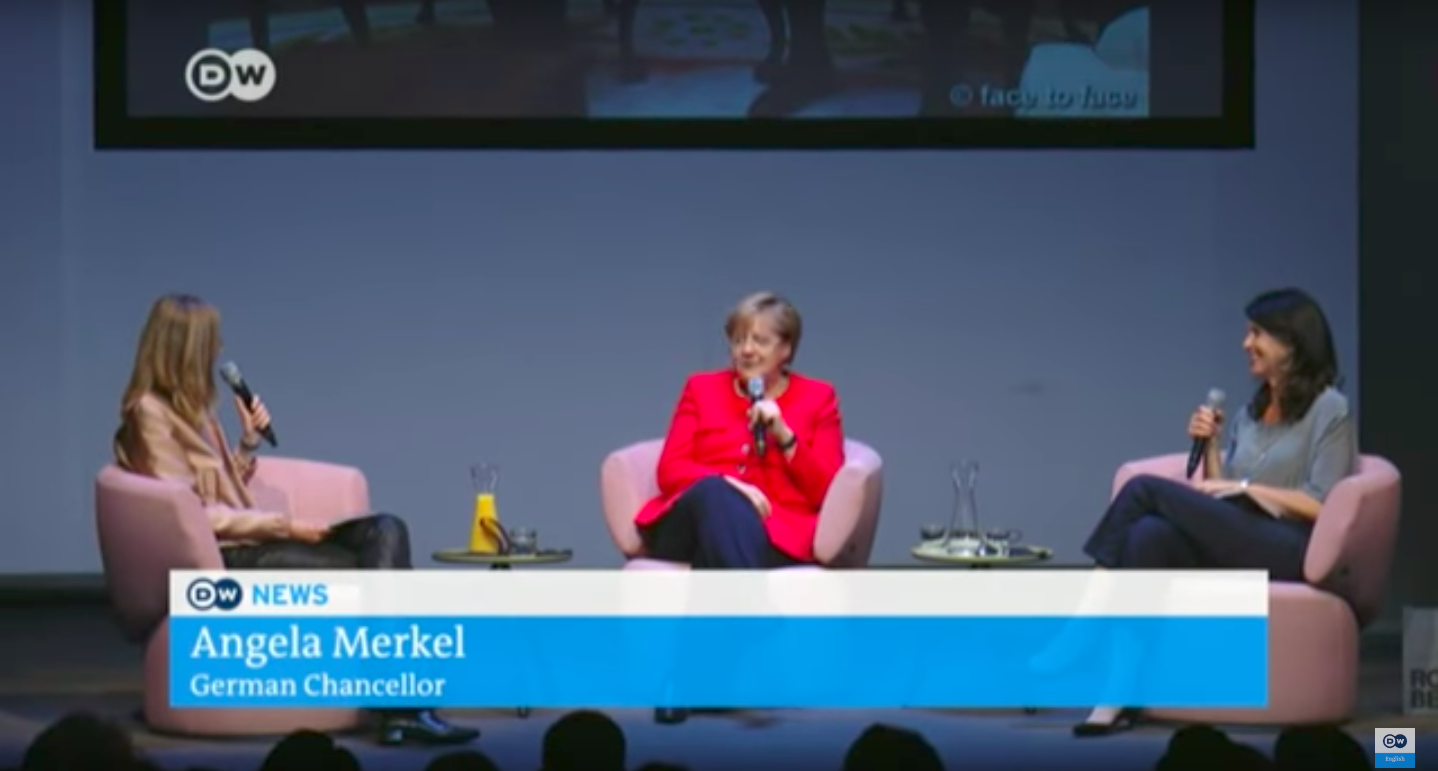This Moment Between Angela Merkel and a Lesbian Mom Could Have Changed History for Same-Sex Marriage

By:
In an historic move, Germany's parliament voted to back the legalization of same-sex marriage on Friday, and the genesis of the vote reveals the power of empathy in political persuasion.
Earlier this week, German Chancellor Angela Merkel announced that she would allow Parliament to vote on same-sex marriage, drawing criticism from her party, the Christian Democratic Union, who have long taken a hard stance against same-sex marriage, according to Reuters. She encouraged other lawmakers to vote according to their personal conscience.
“I would like to steer the discussion more toward the situation that it will be a question of conscience instead of me forcing something through by means of a majority vote,” Merkel said. This meant that lawmakers weren't forced to vote along party lines and could vote however they wanted. Merkel voted against the bill, which she did not reveal she would do before the vote, because she said that German law defines marriage between a man and a women.
As some have pointed out, the fact that Merkel opened the door to make legalized gay marriage possible, even though she voted against it herself, reveals a political and personal struggle with the issue.
"It occurs to me that Merkel is feeling increasingly exposed because she certainly wants to align herself with a progressive EU culture and tradition, and she’s in some ways the leader of that now,” Robert Beachy, the author of “Gay Berlin: Birthplace of a Modern Identity" told The Washington Post. “It made the absence of same-sex marriage in Germany that much more glaring.”
The vote took place amidst the backdrop of Germany's upcoming September elections, with Merkel up for a fourth term. Polls have indicated that large majorities of Germans support gay marriage, and Merkel's decision to allow the vote could help her in the upcoming election, according to ABC News. The Social Democrats, the Free Democratic Party, and The Greens also put pressure on Merkel to hold the vote.
However, a personal interaction with a lesbian mother likely softened Merkel's conservative stance on same-sex marriage.
At an event held on Monday by the women's magazine Brigette, Merkel, the daughter of a Protestant paster, talked about how she recently decided that gay couples should be able to adopt. She said she told a lesbian voter that she struggled with same-sex couples adopting, and the voter made a gracious offer.
"I tell you what, come and visit me in my home, where I live with my lesbian partner and eight foster children," Merkel described woman's response. "The foster children have been with us for many years, and I think they are doing well."
Merkel said she had not had the time to accept the offer yet, but she said it had helped her realize it may be better for children to live with any qualified and loving couple, including gay or lesbian couples, than remain un-adopted in foster homes. Same-sex couples do not currently have the right to adopt in Germany, according to The New York Times.
 Youtube/DW English - youtube.com
Youtube/DW English - youtube.com
ATTN: previously wrote about how empathy can be an effective tool in changing someone political opinion.
"Others will only respond if they can actually see the effects of what is taking place or proposed, and but many people respond more to emotional appeals," Scott Wunn, the executive director of the National Speech and Debate Association told ATTN: in May of 2016. "If they care about the people or issues involved, they are much more likely to be convinced."
Merkel's move to bring the issue of same-sex marriage to a vote and parliament's decision to support legalization has extra significance in Germany. Homosexuality was criminalized in the country until as recently as 1969, and the Nazis specifically targeted male homosexuals for persecution and removal to concentration camps.
